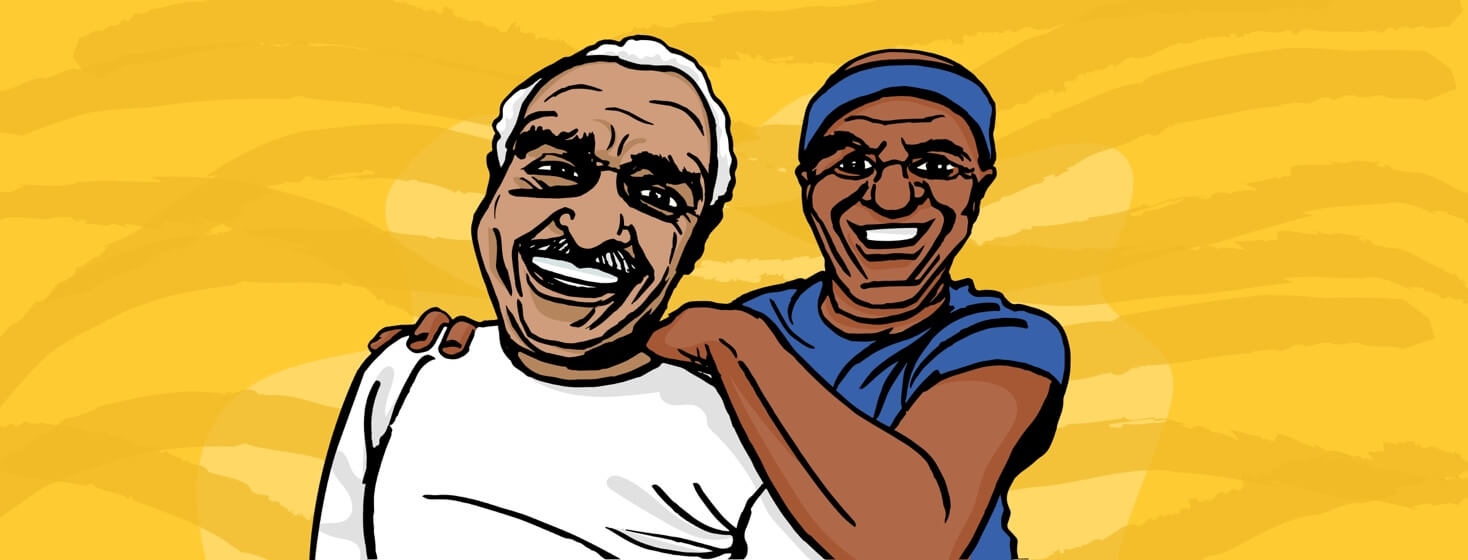Support and Friendship through Hard Times: Part 2
In an interview with my co-author Ron Sorter about our new book, Letters In A Helmet, A Story of Fraternity and Brotherhood, Ron and I discuss the importance of support and friendship through hard times, Vietnam, bereavement, and cancer. Read Support and Friendship through Hard Times: Part 1 for the first half of the conversation.
Why should men "open a vein" and tell their story?
Ron: My wife’s death almost destroyed me. Losing my leg was child’s play in comparison. Mental anguish is a lot like cancer. If you don’t get it cut out, it will eventually kill you. Persons filled with anguish feel and look like death. Whether with a scalpel or, metaphorically, with a pen, blood must flow and, when it does, one has a good chance of being healed.
What have you learned since telling your story?
Ron: From my fellow Dekes I learned one thing we now have in common: to a man, each of us was chagrined that we hadn’t kept in better contact with the friends we’d made in the brotherhood. We compared several reasons for that, but ultimately we all felt like we’d robbed ourselves of the great times we could have had with those friends we’d made when we entered the adult world.
The brothers we spoke to were happy that our house’s story had been told. We discovered several very close friendships that had survived a lifetime. As Richard Legatski, a fraternity brother in our book, said, “It takes work but it’s worth it.”
What were you most hesitant to share?
Ron: I was afraid to write about the death of my darling wife, Michelle. It was so recent and the pain was razor-sharp. But by the end of my writing, when it came time for Michelle’s turn to have me write her story, I was ready.
It was brutal, heartrending. I was grief-stricken as I forced myself to remember all the details and write sensibly about it. Creating an arrangement of words to do that slowly healed me. At the end, I could read those last chapters about her and know that I’d told her story, a story of a woman’s life, wonderfully and truly lived. I could breathe again.
How has your experience as a veteran changed the way you approach support?
Ron: When you’ve become accustomed to asking other men, "Are you carrying enough grenades?" there isn’t much that you feel uncomfortable about talking to other guys. There develops a practice of speaking in the most open terms about anything, as a matter of course. That openness rarely morphs back into shyness.
How did you support Bob through his prostate cancer?
Ron: Regarding medical situations, such as Bob’s entanglement with prostate cancer, my experience of being an amputee in a large Army hospital ward of similarly wounded veterans has inured me from any hesitancy to speak honestly about his diagnosis or concerns about its future impact on him.
I think our history of speaking plainly to each other is the foundation of our friendship. I knew I could plainly say how maturely and forthrightly he was dealing with a very scary situation. My service in the military, and especially my resultant stay in an army hospital, helped me be able to see and speak without blinders of any kind.
Who is the better writer, Ron or Bob?
Ron: Rolling Stones’ Ron Woods and Keith Richards were once asked, “Who is the better guitarist?” Woods immediately answered, matter-of-factly, “I am, of course.” Richards said, “I’m not sure who’s the better guitar player. But when we play together, our band is the best in the world.”
"It all becomes a question of style." -- Albert Camus
Who is Letters In A Helmet written for?
This book is for anyone who is convinced that no one cares. We show how every life is populated by more brothers, friends and “found family” than one needs. We demonstrate that all that’s required is for the reader to take the first step: make the call, type an email, write a letter. It may be difficult but it is a reassuringly simple thing to do.
Learn more about Letters In A Helmet and The Prostate Chronicles on Bob and Ron's website.

Join the conversation